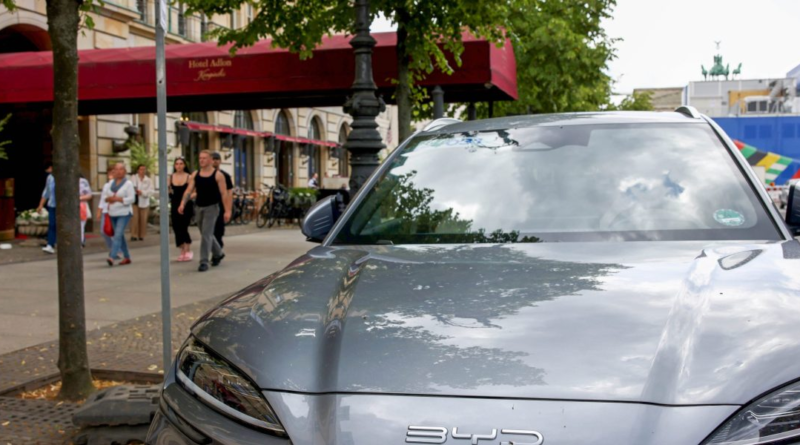China goes into panic mode over EU tariffs on electric cars, offers perks for German carmakers if they drop restrictions
On the precipice of an all-out trade war with the European Union, China is panicking and dangling perks for German carmakers to try to bring things back from the brink.
The world’s second-biggest economy proposed lowering its existing 15% tariff on imported large engine vehicles from EU countries in an effort to convince Germany to get the EU to scrap tariffs announced last week of up to 38.1% on Chinese EVs, Bloomberg reported, citing people familiar with the discussions.
China’s Commerce Minister Wang Wentao reportedly proposed the agreement in a meeting with German counterpart Robert Habeck in Beijing over the weekend, according to one of the people cited by Bloomberg. It’s unclear whether the incentive, which would greatly benefit German automakers, will change the EU’s position, but it could convince Germany to use its leverage as the bloc’s biggest economy to possibly change the terms before the tariffs are set to take effect on July 4.
China’s incentive approach is a stark contrast from its knee-jerk reaction following the announcement of the EU tariffs last week. After the EU voted to impose tariffs of up to 38.1% on Chinese-made cars produced by some of the country’s biggest automakers, China announced an anti-dumping probe on pork imports from the EU. More than half of all pork imports to China, the world’s largest pork consumer, came from the EU last year, according to Chinese customs data. China has also threatened to raise tariffs on large engine vehicles to as high as 25%, which would directly affect German carmakers.
Whether with incentives or threats, China is desperate to scrap the EU tariffs. From January to April, 37% of Chinese EVs were exported to EU member states. Chinese automakers are already facing 102.5% tariffs instituted by President Joe Biden last month and Canada said Monday it was considering levying its own tariffs on Chinese EVs as well.
The incentive of lowering tariffs on vehicles imported to China is also tempting for German automakers. Sales to China made up about one-third of all German car sales last year, but once-dominant German carmakers are increasingly facing pressure from cutthroat Chinese car companies.
Last year Volkswagen was replaced as the top-selling car brand in China by domestic player BYD. For cars above $34,500, German brands’ market share fell to an estimated 45% in 2023, compared to 60% in 2020, the Wall Street Journal reported, citing data from Bernstein.
Lower tariffs could help provide a boost to German automakers battling against competitive Chinese players. The German Association of the Automotive Industry has already come out with a statement to make it clear the new tariffs could do more harm than good.
“The potential damage that could be caused by the measures now announced may be greater than the potential benefits for the European – and in particular the German – automotive industry,” the association said in a statement.
Despite the harsh rhetoric between the EU and China, there may still be hope the two can avoid an all out trade war. Brussels and Beijing will begin talks over the EV tariffs this week, according to a statement from China’s Commerce Ministry.
In the meeting over the weekend with Germany’s Habeck, China Commerce Minister Wang said China was open to negotiations but also warned that it was not afraid to retaliate.
“If the EU is sincere, China hopes to start negotiations as soon as possible; if the EU insists on its own way, China will take all necessary actions to defend its own interests,” Wang said, according to Chinese state media.



